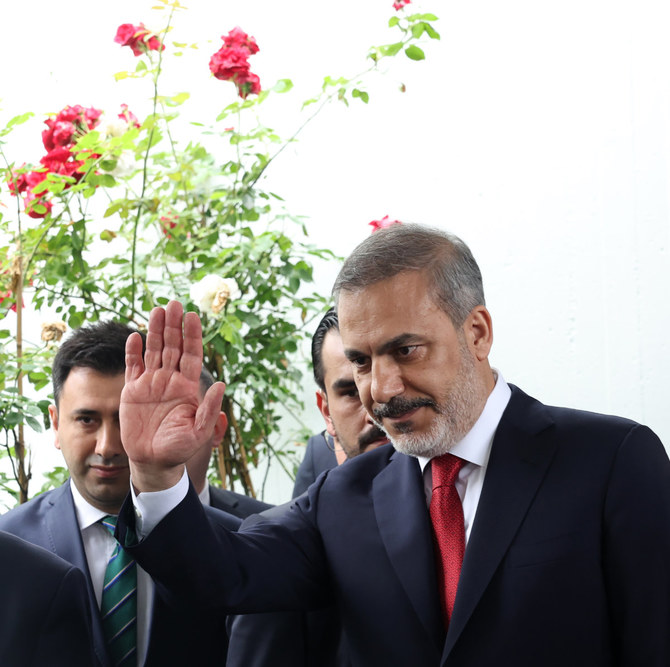
Now well into the first year of his presidency, Joe Biden has offered very few clues about his approach to foreign policymaking. This is surprising. For someone who has spent half a century in government, including stints as chairman of the Senate Foreign Relations Committee and as vice president during the Obama administration, it is reasonable to assume that he would take an interest in foreign affairs. However, the first few months of his administration have shown otherwise.
Foreign affairs barely featured during Biden’s presidential campaign. He made his first — and so far only — overseas trip as president in June. This was the longest that any president has waited before traveling internationally since Dwight D. Eisenhower in the 1960s.
This approach to foreign policymaking has left many of America’s friends scratching their heads. While some countries were relieved by a Biden election victory — especially those in Europe, which had a fraught relationship with Donald Trump — the honeymoon period is quickly coming to an end. Traditional US allies, while welcoming a more conventional president in the White House, are starting to wonder where they fit into America’s foreign policy.
Though Biden has not given any indication on what a “Biden doctrine” might be, it is possible to start piecing together bits of the puzzle to build a picture of what his foreign policy approach will be.
Firstly, he was elected on a domestic agenda. This is what he cares most about and this is why he has shown little interest in foreign policy, outside of the issues of China and climate change. Conveniently, if not coincidentally, both of those issues overlap both domestic policy and foreign affairs.
To give credit where credit is due, Biden has been fairly robust on China. The administration has introduced economic sanctions against Chinese officials over human rights abuses, and against companies tied to China’s defense sector. It has also been tough on Beijing when it comes to Hong Kong and Taiwan.
Secondly, Biden is not interested in learning from his involvement in past mistakes. This is evident from his decision to hastily withdraw US forces from Afghanistan without showing any concern about the consequences.
In 2011, while vice president, he was part of the decision taken by the Obama administration to withdraw all US forces from Iraq, even though critics called for a small training force to remain behind to assist the Iraqi security forces. By 2014, Daesh had captured large parts of the country, including its second largest city, Mosul. In the end, Obama had to send US forces back to Iraq.
It is clear from the current security situation in Afghanistan that Biden is repeating the mistake Obama made in Iraq.
Thirdly, Biden demonstrates an unwillingness to admit when he is wrong on major foreign policy issues. His administration’s approach to the Joint Comprehensive Plan of Action (JCPOA), also known as the Iran nuclear deal, is a good example of this. Of course, as vice president he played an important role in bringing the US into the 2015 agreement. Many of those that were serving in the Obama administration at the time are now part of the Biden administration and are politically and personally wedded to the survival of the JCPOA.
Considering Iran’s behavior over the past six years across the region, it beggars belief that any foreign policy practitioner could objectively support a US return to the deal. Also, the desperation of the White House to revive the JCPOA, coupled with Tehran’s reluctance to make progress in the ongoing talks in Vienna, has made the US look weak.
Finally, in an era of great competition between world powers, a superpower such as the US has two big advantages: Economic influence and a strong national defense. Sadly, the Biden administration has shown little desire to advance either.
There has been no meaningful push by the Biden White House to secure new free trade deals. Instead, many of the same protectionist economic policies that were implemented by the Trump administration have been kept by the Biden administration.
When it comes to defense spending, the situation is also bleak. If Biden gets his way with his 2022 budget request, the Department of Defense will get a paltry 1.6 percent increase in funding. This is actually a real-terms cut to defense spending, because inflation is expected to be 2.2 percent.
Considering Iran’s behavior over the past six years across the region, it beggars belief that any foreign policy practitioner could objectively support a US return to the deal.
Luke Coffey
The Biden administration’s unwillingness to promote free trade and economic freedom around the world, or to properly fund the US military in line with America’s global interests, could ultimately undermine the tough stance taken by the White House against China so far.
Robert Gates, who served as defense secretary for both the Bush and Obama administrations, wrote in a 2014 book that Biden “has been wrong on nearly every major national security issue over the past four decades.”
Admittedly, Biden is still in the early days of his presidency. Perhaps global events will force him to become a more internationally focused president. Or perhaps as he feels more comfortable dealing with domestic issues, he will find more bandwidth to deal with global matters beyond climate change and China. Maybe he will finally realize that the JCPOA was a bad deal in 2015 and remains a bad deal today. However, this is unlikely.
Expect an unpredictable and disjointed approach to foreign policy coming from the White House over the next few years.
Luke Coffey is the director of the Douglas and Sarah Allison Center for Foreign Policy at the Heritage Foundation. Twitter: @LukeDCoffey
Disclaimer: Views expressed by writers in this section are their own and do not necessarily reflect Arab News" point-of-view












